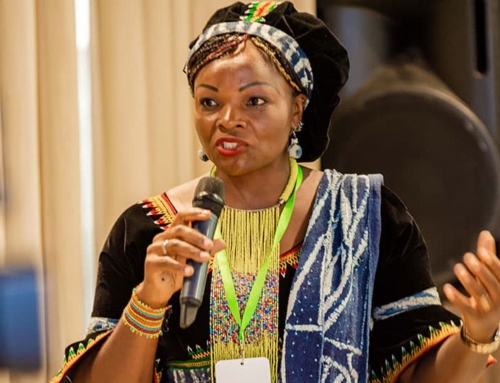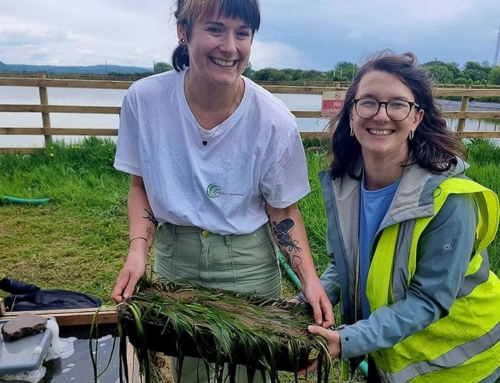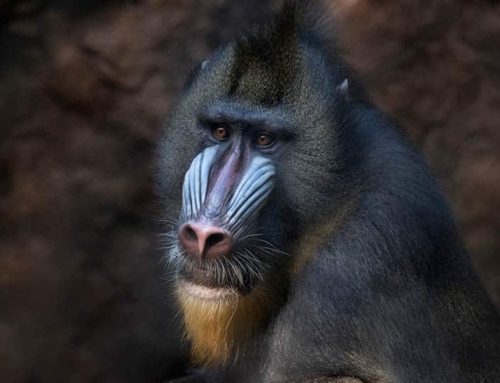The ocean is intrinsically entwined with our experience of the world, influencing our climate, our air, our food, our energy and more. Yet for many people, particularly those who live away from the coast, what is happening underwater, beyond our shores, feels too far away to contemplate or care about.
But re-establishing the vital connections between our culture and our coastlines, and a sense of shared responsibility for what happens in our ocean, is critical for a sustainable future. In discussion with Anna Heath at a Synchronicity Earth event, four extraordinary women who have dedicated their lives to conserving our oceans speak about the oceanic connections we all carry, the challenges facing marine conservation, and their hopes for the future.
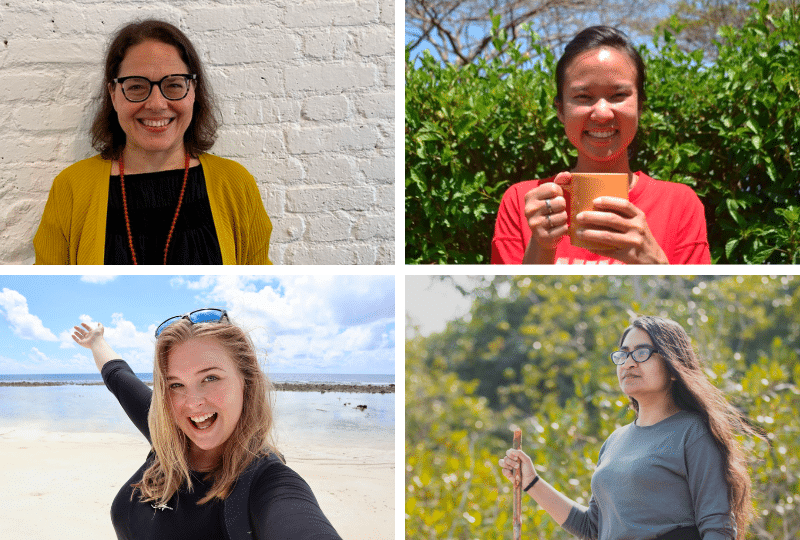
Four extraordinary conservationists working with organisations in our Ocean Programme. From top left, clockwise: Jasmina Peri (BLOOM Association), Rujinun ‘Dream’ Palahan (Save Andaman Network), Alifa Haque (Bengal Elasmo Lab), and Hannah Rudd (High Seas Alliance).
Turning points: back to the ocean
“Once the sea casts its spell, it holds one in its net of wonder forever,” says Jasmina Peri. She grew up watching documentaries on the ocean by Jacques Cousteau and National Geographic, visiting the seaside on holiday, and hearing stories from her father, who used to dive and fish in the Red Sea.
But like many of us who held strong connections to nature as children, she grew up and found herself distanced from it. Having followed a career in marketing and advertising, she reached a turning point eight years ago when she realised that the packaging company she worked for was contributing to the plastic pollution crisis in the ocean. She left in 2019 to become a Programme Director at a French non-governmental organisation, BLOOM Association, focused on research and campaigning about crucial issues in the ocean.
Rujinun ‘Dream’ Palahan also experienced a ‘turning point’ in her life when she realised that her career working in oil and gas did not align with her values. Dream studied environmental management for her master’s degree in Costa Rica and the Philippines. Upon her return to Southern Thailand, she began working in agroforestry in the Trang province.
She now leads the Community Restoration Project at the Save Andaman Network (SAN), which became a Synchronicity Earth partner this year. The SAN concentrates on community participation to conserve and protect rare marine species such as dugongs. The more time Dream spent engaging with the ocean, the stronger her connection to it became, and the greater her understanding of our relationship with underwater life.
“I really want everyone to stop, sit, and look at the ocean. Close your eyes, listen. Open your eyes. There are so many more angles to understanding the ocean than the human experience, and the longer you spend around the ocean, the more beauties you will see.”
Rujinun ‘Dream’ Palahan
Collaboration between conservationists and fishing communities
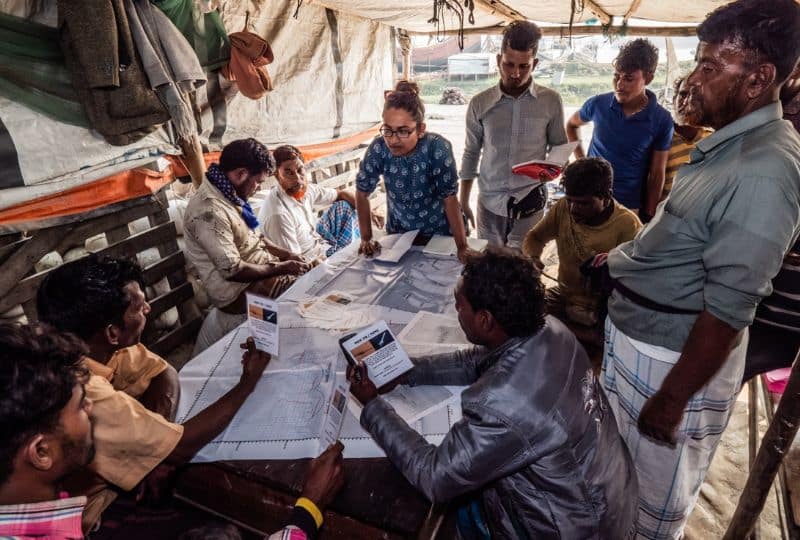
Alifa’s team includes local fishers, and the group works closely with the fishing community to both include them as part of their social and ecological research, as well as to identify barriers to taking conservation action. Image: Alifa Haque
For Alifa Haque, the beauties of the ocean came in the form of a fascinating order of fish, the rhinopristiformes rays. This includes some of the world’s most threatened marine fishes, the striking largetooth sawfish and sharpnose guitarfish. Becoming fascinated by this overlooked group drew Alifa into a career in conservation. In 2018 she founded Bengal Elasmo Lab to research these fish and drive action to conserve them through partnerships with local fishing communities
“I found myself working within social fabrics which were very different from where I came from. I learned that discussions about the importance of these communities was largely absent in marine conservation and species conservation.” Alifa informally collaborates with a team of local fishers to fill knowledge gaps and build inclusive solutions for shark and ray conservation. She prioritises sustainability solutions aligned with the belief systems and economic needs of local communities. By engaging fishers in evidence-based social and ecological research, she can identify the needs of threatened sharks and rays while ensuring locals are invested in conservation and able to comply with guidelines.
“I want to create a legacy and develop an approach where collaboration between conservationists and fishing communities is meaningful, and they have the power to voice their own agendas, their visions of what needs to be done and how it needs to be done. After all, if we do not have their input, and as a result they do not have the capacity to adhere to the laws marine conservationists are putting in place – economically, traditionally, culturally – at the end of the day, even the best solutions will fail”.
Alifa Haque
Including more voices in ocean conservation
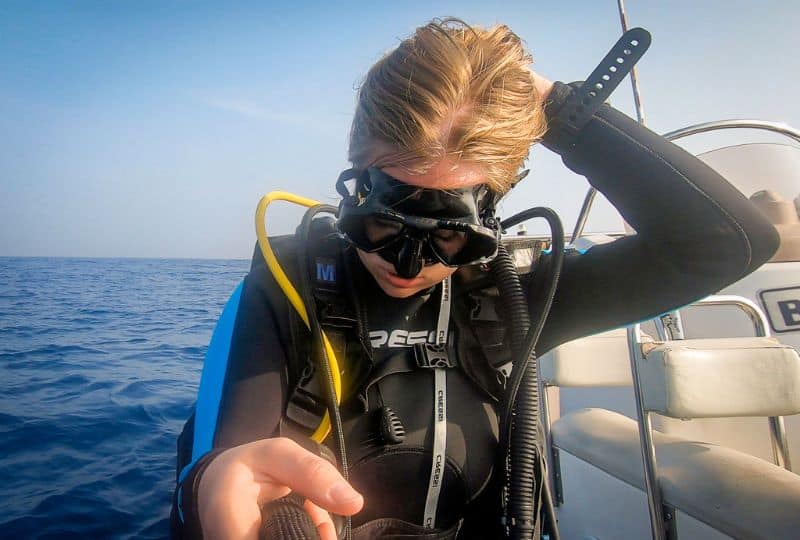
Women and young people are under-represented in ocean conservation, and the environment sector more widely, and we have to focus on including as many voices as possible for true impact for people and wildlife. Image: Hannah Rudd
There are other important voices that are being all-too-often overlooked in marine conservation. Hannah Rudd, a youth ambassador at the High Seas Alliance, emphasises the importance of young people having the opportunity to shape climate action. Influential young activists such as Greta Thunberg have raised awareness for global environmental issues.
However, youth are still underrepresented in the environmental sector. As Hannah remarks, “Youth voices have traditionally been overlooked and undervalued within negotiations globally.” Hannah believes young people must be involved in decision-making when it comes to building a sustainable future.
Women are similarly overlooked and underrepresented in conservation. Many women scientists find it extremely difficult to carry out research due to a lack of financial support. Alifa recognises that women in conservation are not afforded the same opportunities as their male counterparts.
“It’s not that just because she’s a woman, she’s going to face those problems. It’s a structural and institutional problem that those structures are not present for a woman to feel supported enough to do the same level of work as a man would do.”
Alifa Haque
A lack of representation
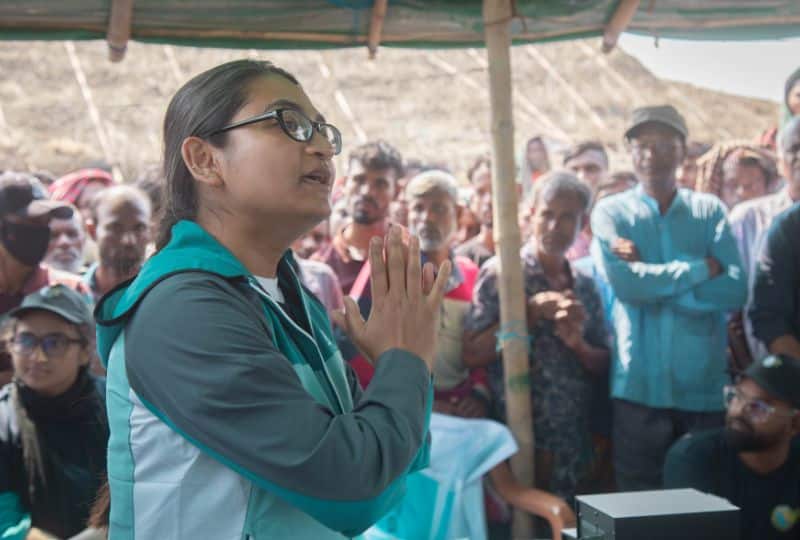
The lack of female scientists and conservationists is creating a ‘vicious cycle’ where young women don’t feel that they would be valued in the sector, so platforming female leaders in conservation is vital to help achieve ocean conservation that benefits all. Image © Fayed Masud Khan
Alifa believes a ‘support system’ is needed, with a designated group of people supporting women scientists within the environmental sector. For example, women in Bangladesh are often unable to travel at night due to safety concerns. Because male researchers do not have to account for the same safety issues, there is often no infrastructure in place to protect female scientists. Alifa argues that dynamics like this disadvantage women at the institutional level.
Encouraging underrepresented groups like women and youth to engage in conservation is a necessity if we want to build a more resilient environmental movement. Hannah says “It’s not that young women and girls aren’t interested in science, they absolutely are.”
Instead, Hannah believes that a lack of representation discourages women and girls from engaging in conservation.
“I watched so many shark documentaries, but I never saw a woman in them. I just continually wonder how many other young women and girls are out there that don’t see themselves and it deters them from pursing their career.”
Hannah Rudd
As Hannah goes on to note, only “a third of the world’s researchers are women.” The lack of women in conservation deters new women from joining the field, creating a vicious cycle. This context makes it even more vital to amplify the accomplishments of marginalized people currently working in the conservation sector. Indeed, the issue goes far beyond women and youth. Hannah notes, “representation matters so much, not only gender representation, but different ethnic minorities, different groups, demographics, parts of the world… all of this plays a part.”
An ocean for all
Where there are more representative figures, more people can imagine themselves building their own connections with the ocean.
From the fishing communities Alifa collaborates with, to Dream’s focus on community partnerships as a tool for conservation, the women we spoke with all emphasized that the fight for marine conservation is also a fight to restore our relationships with the ocean.
Often, it is those people whose voices have been silenced—women, young people, local and Indigenous communities—who can inspire truly transformational action. Ultimately, if we want a healthy and biodiverse ocean, we all need to look after it.
As Hannah reminds us, the ocean “belongs to all of us.”


